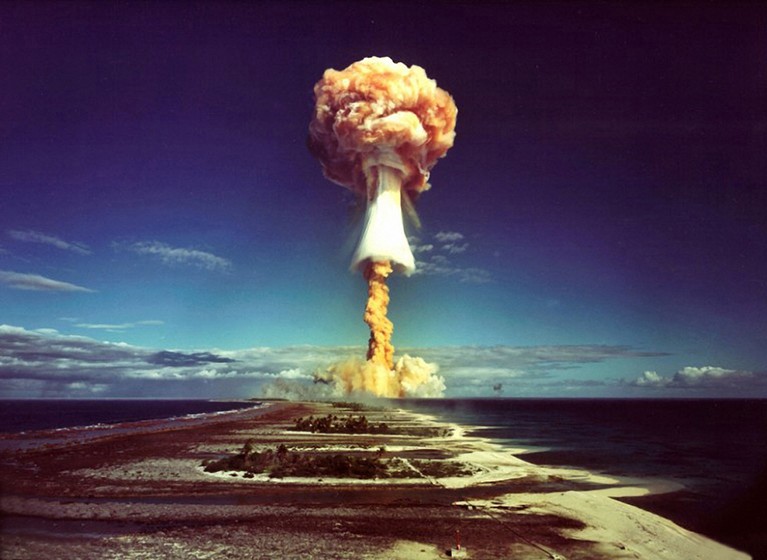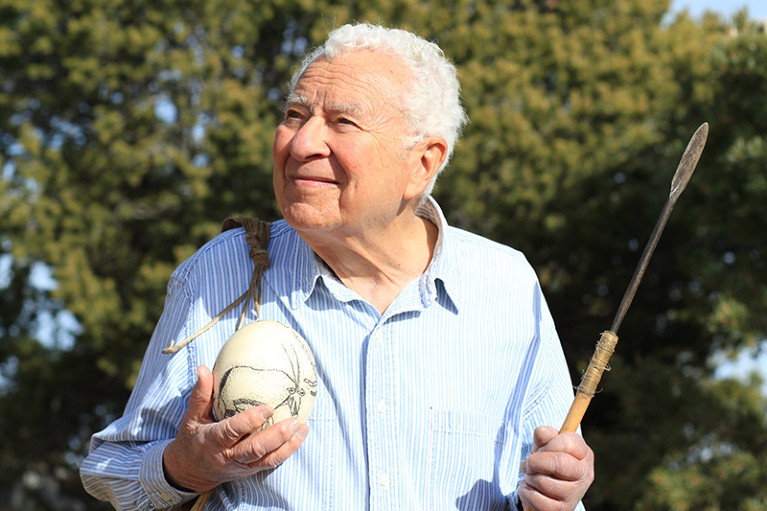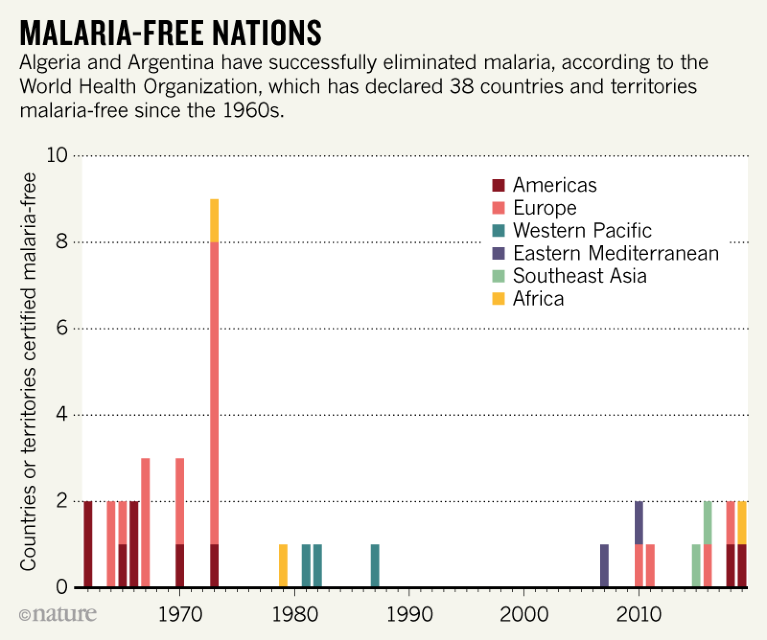EVENTS
The Anthropocene is now A panel of scientists voted last week to designate a new geological epoch — the Anthropocene — to mark the profound ways in which humans have altered the planet. The decision by the 34-member Anthropocene Working Group (AWG) marks an important step towards formally defining a new slice of the geological record. The panel plans to submit a formal proposal for the epoch by 2021 to the International Commission on Stratigraphy, which oversees the official geological time chart. Most of the AWG voted in favour of starting the Anthropocene in the mid-twentieth century, when a rapidly rising human population accelerated the pace of industrial production, the use of agricultural chemicals and other human activities. The group will now focus on identifying a definitive geological marker — or ‘golden spike’ — and defining the physical evidence in the sedimentary record that represents the epoch’s start. One option under consideration is the radionuclides produced by atomic-bomb detonations in the mid-twentieth century.

Radionuclides produced by atomic-bomb blasts in the mid-twentieth century could mark the beginning of the Anthropocene.Credit: Galerie Bilderwelt/Getty
Pollution cover up Local governments in China have been fabricating environmental reports, helping companies to conceal illegal dumping and deceiving central-government inspectors, according to a report by the country’s environment ministry. The ministry says that last year it uncovered thousands of violations of environmental regulations in ten provinces. On 16 May, the ministry released a summary of these findings and attempts by local governments to redress their actions. In Anhui province, for example, artificial-diamond manufacturers allegedly dumped waste water and hazardous solid waste. But when inspectors went to investigate, officials tipped the manufacturers off. In some cases, officials even instructed companies to forge waste-disposal contracts, flush a contaminated ditch of waste water and temporarily suspend production to seem compliant with regulations. The ministry says local officials also forged documents to cover up their negligence. The ten provinces have made progress in cleaning up environmental messes, according to the ministry. Shanxi province, for instance, has fined polluters 24 million yuan (US$3.5 million) and set out to resolve 1,463 violations of environmental regulations.
CONSERVATION
Invasive species A team of more than 70 scientists will assess how invasive species influence ecosystems around the globe over the next three years, the Intergovernmental Science-Policy Platform on Biodiversity and Ecosystem Services (IPBES) announced on 22 May. The researchers will compile a catalogue of invasive species, describe their effects on the environment and evaluate how and why they spread. The assessment will also address whether current control methods are effective and suggest options for future policies. An IPBES report released earlier this month found that human activities put up to one million plants and animals at risk of extinction. The analysis classified the spread of invasive species as one of the greatest threats to nature. Invasive species were responsible for a 20% decrease in the average abundance of wildlife in most major ecosystems since 1900, according to the report.
FUNDING
Double-blind review Taiwan’s science ministry is considering introducing double-blind peer review to assess research-grant proposals, a trend being adopted by some journals to eliminate bias. The Ministry of Science and Technology says it has begun soliciting feedback from scientists. Currently, grant proposals include the name of the applicant, but the reviewers remain anonymous — a method known as single-blind review. In a double-blind system, the identities of both applicant and reviewer are redacted, to reduce personal bias and conflicts of interest. Mark Burgman, an ecologist at Imperial College London and editor-in-chief of Conservation Biology, which uses double-blind reviews, says he is not aware of any funding agencies that do this, but he thinks it is a good idea. Chang Tien-Hsien, director of the Program for Promotion of Research Integrity at Academia Sinica in Taipei, thinks it will be difficult to anonymize grant applications. Authors often cite their previous studies in their proposals, which would allow senior reviewers in the field to guess who they are, says Chang.
PEOPLE
Quark father Murray Gell-Mann, one of the founders of modern particle physics, died on 24 May, aged 89. Gell-Mann’s most influential contribution was to propose the theory of quarks — fundamental particles that make up most ordinary matter. In 1961, Gell-Mann (pictured) proposed a method of classifying subatomic particles called hadrons into eight groups on the basis of rules of symmetry in nature’s fundamental forces. In 1964, Gell-Mann realized that such rules would arise naturally if the particles were composed of two, three or more fundamental particles of matter, held together by the strong nuclear force. He named these fundamental components quarks. US researchers confirmed the existence of quarks in 1968, and Gell-Mann, who spent much of his career at the California Institute of Technology in Pasadena, won the Nobel Prize in Physics the following year.

Murray Gell-Mann proposed the theory of quarks in the 1960s.Credit: Santa Fe Institute
PUBLISHING
Open peer review Open-access publisher PLOS will give authors the option to publish their papers’ peer-review records, the company said on 22 May. PLOS, which is based in San Francisco, California, will give researchers this choice when their manuscript is accepted for publication in any PLOS journal. Choosing open peer review will lead to the editor’s full decision letter being made publicly available, alongside reviewer comments and author responses for each revision of the article. This gives reviewers the chance to earn credit from others, as well as citations for their comments. They will retain the option of remaining anonymous or signing their name. The changes will apply to manuscripts submitted after 22 May.
POLICY
Chagos resolution The United Nations’ main decision-making body, the General Assembly, has overwhelmingly passed a resolution that calls on the United Kingdom to end its occupation of the Chagos Islands in the Indian Ocean — home to one of the world’s largest marine reserves. The resolution, which is non-binding, calls on Britain to “withdraw its colonial administration” of the islands and return them unconditionally to Mauritius within 6 months. Six nations, including Britain, the United States and Israel, voted against the motion. The UN’s highest court ruled in February that the United Kingdom is acting illegally by holding on to the Chagos Islands after the rest of Mauritius gained independence in the 1960s. Starting in that decade, Britain expelled the Chagos Islands’ 1,500 or so inhabitants to lease the island of Diego Garcia to the United States for a military base. In 2010, it created the 640,000-square-kilometre Chagos Marine Reserve — leaked UK government documents have revealed that this could have been a tactic to discourage Chagossians from returning.
Gene-editing panel An international commission of science academies plans to develop scientific and ethical guidelines for editing the human genome in ways that can be passed to future generations. On 22 May, the US National Academy of Sciences, the US National Academy of Medicine and the UK Royal Society said that representatives from ten countries will study issues such as scientific hurdles to human genome editing, methods of obtaining consent from patients, the appropriate level of oversight and ways to monitor children born with edited genomes. Geneticist Kay Davies at the University of Oxford, UK, and Richard Lifton, president of the Rockefeller University in New York City, will co-chair the group. The commission, which plans to release its report in 2020, is the latest in a series of panels convened around the topic of human germline editing, including one at the World Health Organization.
TREND WATCH
The World Health Organization (WHO) declared Argentina and Algeria malaria-free on 22 May, after the two countries reported no cases for more than three years. The success brings the number of malaria-free countries to 38. Algeria — where scientists discovered the disease-causing parasite in 1880 — reported its last native malaria case in 2013; Argentina’s last case was in 2010. Both nations had maintained low transmission rates for decades, and health coverage and surveillance were crucial in their fight against the disease. Argentina also worked with neighbouring countries to spray homes with insecticides. The WHO’s Global Malaria Eradication Programme (GMEP) and local efforts relied on the insecticide DDT and medication to help more than 20 countries become malaria-free between the 1960s and the 1980s (see chart). But the agency abandoned the GMEP in 1969, after scientists realized that global eradication was not feasible in the short term. In 2016, the WHO began targeting 21 countries with the goal of eliminating malaria there by 2020. Two of them — Paraguay and Algeria — are now malaria-free. In 2017, the disease killed about 435,000 people.

Source: WHO




